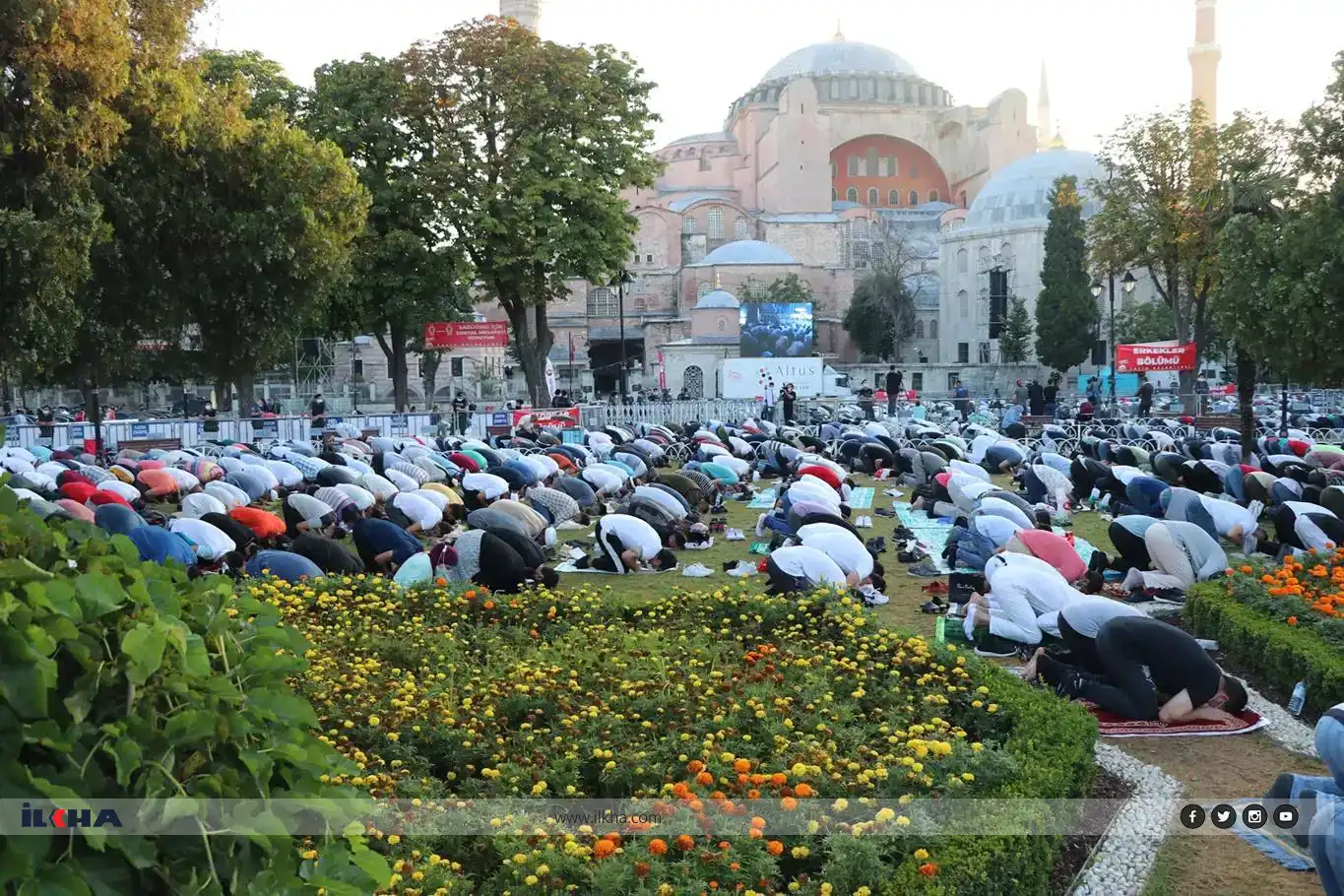Hagia Sophia Mosque celebrates third anniversary of reopening for worship


The Hagia Sophia Mosque celebrated its third anniversary on July 24, 2023, marking a significant milestone for Muslims worldwide.
The historical site holds great importance, being the symbol of conquest and the place where Fatih Sultan Mehmet conducted the first Friday prayer after the conquest of Istanbul.
On the anniversary of this significant event, Muslims from various countries gathered alongside Istanbul Governor Davut Gül to participate in the morning prayer, led by the President of the Presidency of Religious Affairs, Ali Erbaş.
In his speech after the prayer, Erbaş expressed immense joy, stating that three years ago, on July 24, 2020, an 86-year-long yearning came to an end when Hagia Sophia was reopened for worship, thanks to the decision of the esteemed President. He shared that in these three years, 21 million people have visited Hagia Sophia, signifying its enduring importance.
Erbaş expressed his hope that millions of people will continue to worship in Hagia Sophia until the Day of Judgment, considering it a legacy left by Fatih Sultan Mehmet, representing the conquest of Istanbul.
He emphasized that for 86 years, Hagia Sophia was not a place of worship, and it was a long-awaited moment for our ancestors and those who passed away before us.
Erbaş also urged the youth to be more sensitive about visiting Hagia Sophia and performing prayers in this grand mosque, wherever they may be in Türkiye.
The reopening of Hagia Sophia to worship for Muslims was a significant event that took place on July 24, 2020. Prior to this date, Hagia Sophia had been serving as a museum for several decades, attracting millions of tourists from around the world to admire its historical and architectural beauty.
The decision to convert Hagia Sophia back into a mosque was made by the Turkish government, and it was met with both domestic and international reactions. President Recep Tayyip Erdoğan announced the decision after Turkey's highest administrative court, the Council of State, ruled in favor of converting the museum into a mosque.
The reopening ceremony was attended by thousands of Muslims who gathered inside and outside Hagia Sophia to mark the historic occasion. The event was also broadcast live on television and online platforms, allowing people from all over the world to witness the momentous event.
The first Friday prayer (Jumu'ah prayer) at Hagia Sophia after its reconversion was led by the President of the Presidency of Religious Affairs, Ali Erbaş. Muslim worshippers were filled with joy and emotions as they prayed inside the grand mosque, which holds immense religious and historical significance.
The transformation of Hagia Sophia into a mosque was viewed by many Muslims as a moment of reclaiming their religious heritage and reaffirming their cultural identity. It also served as a symbol of Türkiye's sovereignty and independence, as the decision to reconvert it was seen as an assertion of national rights.
Following the reopening, Hagia Sophia continued to be open to visitors from all over the world, both Muslims and non-Muslims, to appreciate its historical and architectural value. However, certain areas of the mosque were designated for Muslim prayer and worship. (ILKHA)
LEGAL WARNING: All rights of the published news, photos and videos are reserved by İlke Haber Ajansı Basın Yayın San. Trade A.Ş. Under no circumstances can all or part of the news, photos and videos be used without a written contract or subscription.
In the heart of Diyarbakır, a city known for its deep historical and cultural ties to Islam, a significant rally was organized by a coalition of Islamic Non-Governmental Organizations (NGOs) and madrasahs on the occasion of Al Quds Global Week.
HÜDA PAR President Zekeriya Yapıcıoğlu met with young people at the Teacher's House Conference Hall in Mardin.
The Turkish Coast Guard successfully rescued 104 irregular migrants, including 49 children, off the coast of Ayvacık district in Çanakkale.
HÜDA PAR Chairman Zekeriya Yapıcıoğlu, during his visit to Mardin, spoke on various pressing topics, including the fire disaster in Bolu, local challenges, the Gaza ceasefire, developments in Syria, and the Kurdish issue.